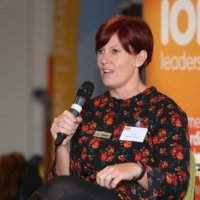EBS Automation Case study
EBS Automation Ltd manufacture bespoke special purpose machinery including tooling, jigs and multi axis machined parts for customers from a range of industries including Automotive, Rail, Pharmaceutical and Life Sciences.
The machinery manufactured is used by customers from across the world in the assembly of a wide range of products and/or the checking of an item’s quality and function before it moves on to the next stage in the production line.
Customers present a manufacturing challenge, and EBS Automation step in, providing a beginning-to-end solution, with mechanical design, electrical design, manufacture, installation and maintenance of the machinery within a client’s production line. Every item that comes out of the EBS Automation facility is developed to individual customers unique requirements.
Established for over 23 years, they pride themselves on their ability to take a blank sheet of paper and deliver a manufacturing solution that will surpass client expectation with the level of quality, innovation, efficiency, robustness and productivity.
Custom machinery has been installed in the UK, USA, Turkey, Spain, Romania, Morocco, Russia, Czech Republic, Poland and Hungary. Replying largely on repeat business and word of mouth, with capacity and capability to take on projects of all sizes, they have worked on products for some of the largest and most prestigious brands in the automotive sector, including Audi, Jaguar Land Rover, BMW, Volvo, Ford, Nissan and Honda.
Innovation and continual improvement is at the heart of the EBS Automation’s ethos, and over the last 5 years, they have embarked on a journey that has completely changed the way they operate, across the Board, resulting in increased turnover and staff numbers.
Managing Director Mike Evans explains:
“Five years ago, the full force of the Global recession had hit home, and the manufacturing world was in a very bad place.
“Taking part in a Swansea University led Leadership Development programme (LEAD Wales) was a genuine lifeline; we met with other businesses facing similar challenges and worked through problems together, sharing experiences and learning a huge amount from the programme’s delivery team.
“Fitting in time and space for innovation is a challenge we all face, and one we’ve recently looked to tackle with the employment of Laila Saikaki, a dedicated Continuous Improvement Coordinator”
EBS Automation have now mapped out every process within their business from an initial order coming in, to the final product going out, and in doing so, identified 14 distinct stages in the business, and how productivity within each of these can be enhanced. In addition, they have developed a 61 point risk assessment to systematically evaluate every potential risks associated with all projects undertaken.
In September 2015, Laila and Mike signed up for the SIM Wales programme, and have spent the last 10 months working on a Change project, implementing a visual management tool within the Sales Department.
They had identified that by improving communication between their sales and manufacturing team at the stage where a project was moved from a confirmed sale, to a live project, the project scope could be extended, delivery time could be reduced and the subsequent cost saving could be passed on to the customer.
A simpler approach to the sales Department structure was introduced, with the development of a new ‘flight path board’ that was displayed on the sales office wall. This enabled the sales team to visually manage enquiries, and follow up on actions within specified deadlines.
This instantaneously improved internal communication and productiveness of the sales pipeline, which has also led to improved customer satisfaction.
On the project, Laila Saikaki commented:
“On the SIM Wales Programme, we spent a lot of time looking at behavioral dynamics and the challenges that introducing change can bring. As with all organisations, there are many different personalities within our organisation, and changing the way people have worked for many years has required time and determination.
“I’ve learnt a lot about myself as part of this project. The problem solving tools and process mapping skills we were taught have helped us manage this process and deliver valuable change. It has been a real catalyst for change, and we are already moving on to our next project, conducting a 5S audit to maintain the quality, efficiency and productiveness of the shop floor.”





.jpg)
Comments